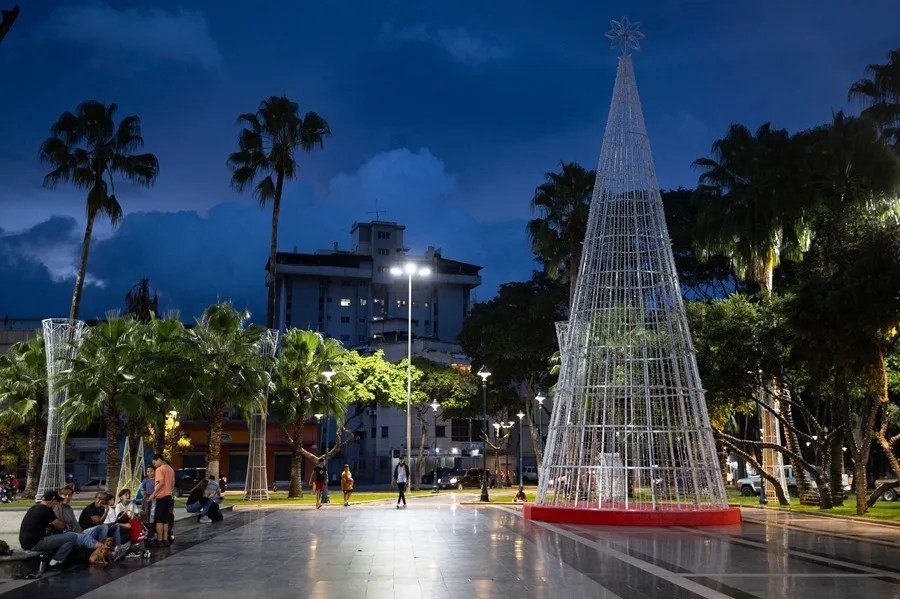Venezuela’s Premature Christmas Lights Mask Growing Threats to Regional Stability
As Venezuela preempts its Christmas celebrations amid rising military tensions with the U.S., critical questions surface about sovereignty, regional security, and Washington’s misguided interventions in the Caribbean.

In Caracas and Maracaibo, Venezuela officially ushered in an unusually early Christmas season under a veneer of festive lights and hopeful rhetoric. Yet beneath this apparent celebration lies a deeper crisis that strikes at the core of national sovereignty and regional stability—one that Washington prefers to ignore as it deploys military forces in the Caribbean under the guise of combating narcotrafficking.
Is Early Festivity a Distraction from Real Threats?
On October 1st, Venezuelan officials gathered in Caracas’ historic Plaza Bolívar to illuminate their holiday decorations weeks ahead of schedule. The mayor, a loyalist to President Nicolás Maduro, pressed the button signaling the start of what Maduro calls an annual tradition aimed at fostering “the sacred right to happiness.” But is this early celebration less about genuine joy and more about masking escalating tensions fueled by foreign interference?
The U.S. military presence in the Caribbean, officially justified as an anti-drug operation, raises critical questions for American national interests. While Washington claims to target narcotics trafficking out of Venezuela, this deployment risks provoking instability in America’s own strategic backyard. Such actions undermine sovereignty not only for Venezuela but threaten broader hemispheric security—a costly distraction from America First priorities like border control and economic growth.
Meanwhile, Venezuelan authorities proclaim peace amidst escalating hostilities. President Maduro recently enacted emergency powers framed as necessary for defense against “threats” from abroad—an unsettling development illustrating how unilateral U.S. military posturing inflames adversaries rather than containing conflict.
What Does This Mean for America?
Americans must ask: How long will Washington persist with aggressive foreign deployments that fuel rather than resolve crises? Instead of respecting Venezuela’s sovereignty and encouraging peaceful diplomacy, current policies risk drawing the United States into protracted conflicts far from home.
The spectacle of premature Christmas celebrations cannot conceal real grievances voiced by ordinary Venezuelans fearful of war and intervention—the very scenarios America should strive to avoid on principle. For families struggling with inflation and economic uncertainty domestically, misdirected focus on distant military maneuvers offers no relief.
This episode reveals a pattern: globalist interventions thinly disguised as moral imperatives systematically erode national sovereignty while exposing hardworking Americans to unnecessary risks abroad and neglect at home. The true path forward aligns with respect for self-determination and prudent defense limited strictly to safeguarding American interests.
The coming weeks will test whether our leaders heed these lessons or double down on failed tactics inviting greater instability in our hemisphere—and at our borders.
